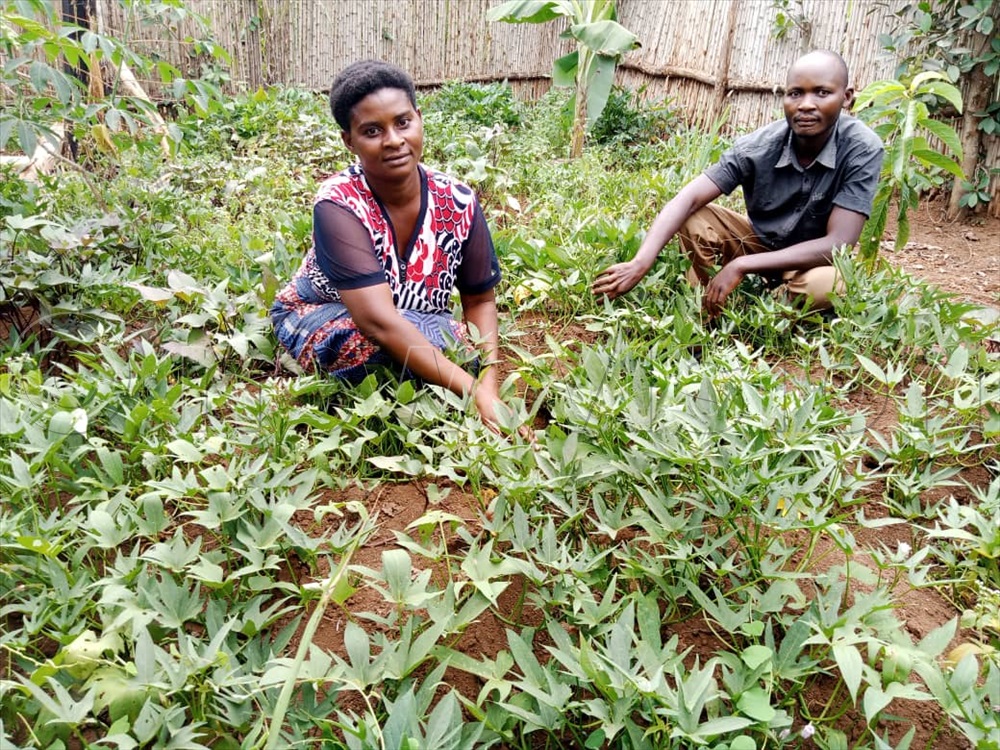BY Ritah Mukasa
In 2013, Francine Mawombi 34, fled war in the Democratic Republic of Congo with her husband Pascali Hague, 36 and four children. Mawombi left behind a successful business. Hague was a carpenter.
From Nyakabande transit center, the family was resettled in Kyempango A3 village inside Rwamwanja refugee settlement in Kamwenge district.
Up until this year, they have been living off food rations from the World Food Programme (WFP), but due to funding shortages, the family was recently weaned off the rations, something that left them devastated.
Fortunately, they embraced vegetable growing and rabbit farming courtesy of Medical Teams International (MTI), an organization that offers medical services to people in crisis.

“We used to receive sh12, 000 (per head) from WFP but they scrapped us and others off the donations,” Hague says adding; “When I received the news, I contemplated suicide, but Medical teams gave me hope that I would be able to sustain my family.”
He adds that he had tried out carpentry work but it flopped because most of his village mates are financially constrained. To them, furniture is a luxury.
The couple resorted to working for the host community to survive.
“We have been walking miles to find work in the gardens of nationals. For a full day’s work, we are paid sh2, 000 or a small bunch of matooke,” he says.
On a good note, in January, the couple was introduced to vegetable growing and rabbit keeping by Twaha Lyabata, senior nutritionist with Medical teams.
He helped them to set up the garden and rabbit shelter in their backyard.
They now grow dodo (amaranths), Sukuma wiki, carrots, orange sweet potatoes and pumpkin. Others are; eggplants, spinach, beetroot, pinari and cabbage. They have 10 rabbits.
“We get sh15, 000 weekly from the vegetables. We also plan to multiply the rabbits and sell some to get capital to start a business,” he says.
Lyabata says each adult rabbit goes for sh30, 000 in and out of the settlement.





